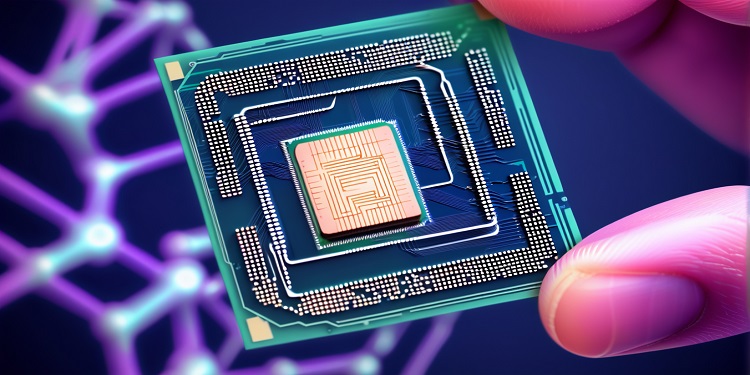SEALSQ Corp, a company specializing in semiconductor development, PKI solutions, and post-quantum technology hardware, has announced the completion of testing and the initiation of the certification process for its QS7001 Post-Quantum Secure Chip. Designed to provide robust protection for blockchain infrastructures and cryptocurrency wallets, the chip is expected to be available before the end of 2025.
The QS7001 Chip represents a significant addition to SEALSQ’s suite of quantum-resilient solutions. By utilizing advanced cryptographic algorithms, including the National Institute of Standards and Technology (NIST)-approved CRYSTALS-Kyber and CRYSTALS-Dilithium, the chip ensures long-term security for blockchain platforms. The integration of these algorithms helps to mitigate potential risks posed by the growing capabilities of quantum computing.
Enhancing Blockchain Security
With the increasing adoption of blockchain technology in sectors such as financial services, identity management, and tokenization, the demand for quantum-secure infrastructure is intensifying. SEALSQ’s CEO emphasized the necessity for platforms to adopt advanced security measures to safeguard users and data against the potential threats emerging from quantum advancements.
Blockchain systems primarily rely on asymmetric cryptography for transaction authentication and asset protection. However, the development of quantum computers presents a significant risk, as they could potentially compromise the security of current cryptographic standards. This vulnerability extends to offline storage wallets, which are exposed once a transaction is made public, providing an opportunity for malicious actors to decrypt sensitive information.
The QS7001 Chip addresses these challenges by introducing features designed for enhanced blockchain protection. It includes quantum-resistant cryptography to secure wallets, transaction signatures, and consensus mechanisms. Additionally, a tamper-resistant hardware enclave ensures private key storage remains secure against both physical and cyber threats. The chip is also engineered for seamless integration with crypto exchanges, hardware wallets, and blockchain applications, facilitating a smooth transition to post-quantum security.
Strategic Partnerships for Integration
SEALSQ has established strategic collaborations to deploy its post-quantum chip in real-world applications. One notable partnership is with Hedera, a distributed ledger technology platform utilizing hashgraph consensus. The integration of the QS7001 Chip within Hedera’s network will strengthen its transaction authentication and overall network security.
Another key collaboration is with WeCan, a Swiss blockchain platform focused on regulated tokenization and digital asset compliance. By incorporating the chip’s security features, WeCan aims to provide enhanced protection for digital identities and tokenized data within financial institutions and government agencies.
Addressing the Quantum Threat
Experts warn that the threat of quantum computing is not just theoretical, as some adversaries are employing a “harvest now, decrypt later” approach. This involves gathering encrypted blockchain data now, with the intention of decrypting it when quantum technology matures. SEALSQ’s proactive response to this threat is evident in the QS7001 Chip’s development, offering blockchain platforms a means to embed quantum-resistant security measures and ensure long-term data protection.
The chip’s capabilities contribute to strengthening digital ecosystems by safeguarding both current and historical data. Through its partnerships and innovations, SEALSQ aims to set a benchmark for secure, future-ready decentralized infrastructures. As blockchain technology continues to expand, the QS7001 Chip serves as a critical component in fortifying digital platforms against the risks posed by quantum advancements.

